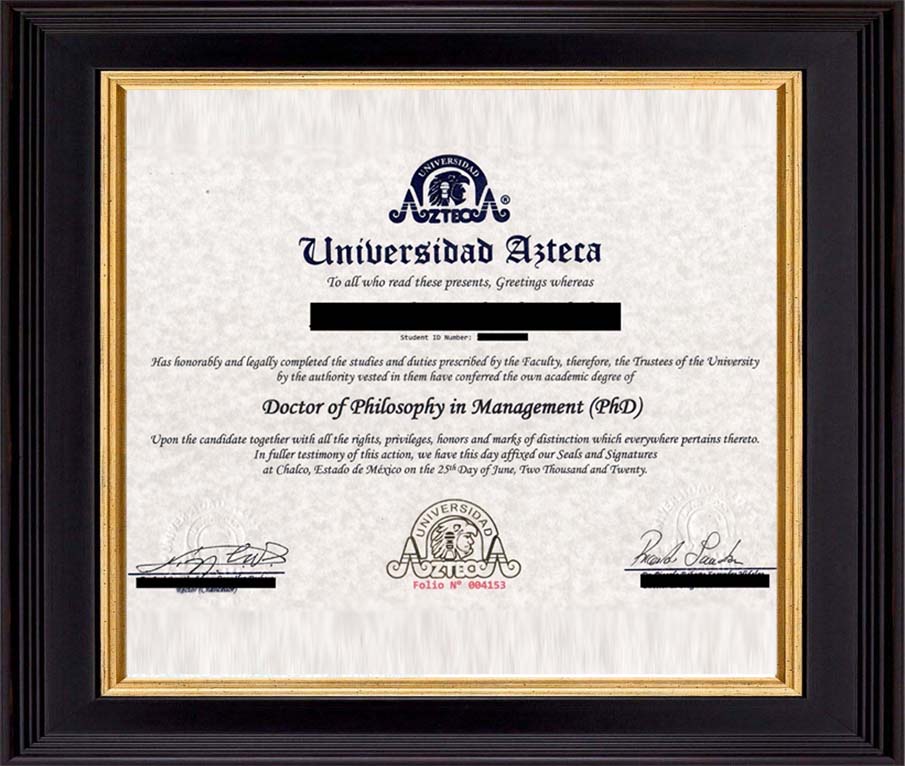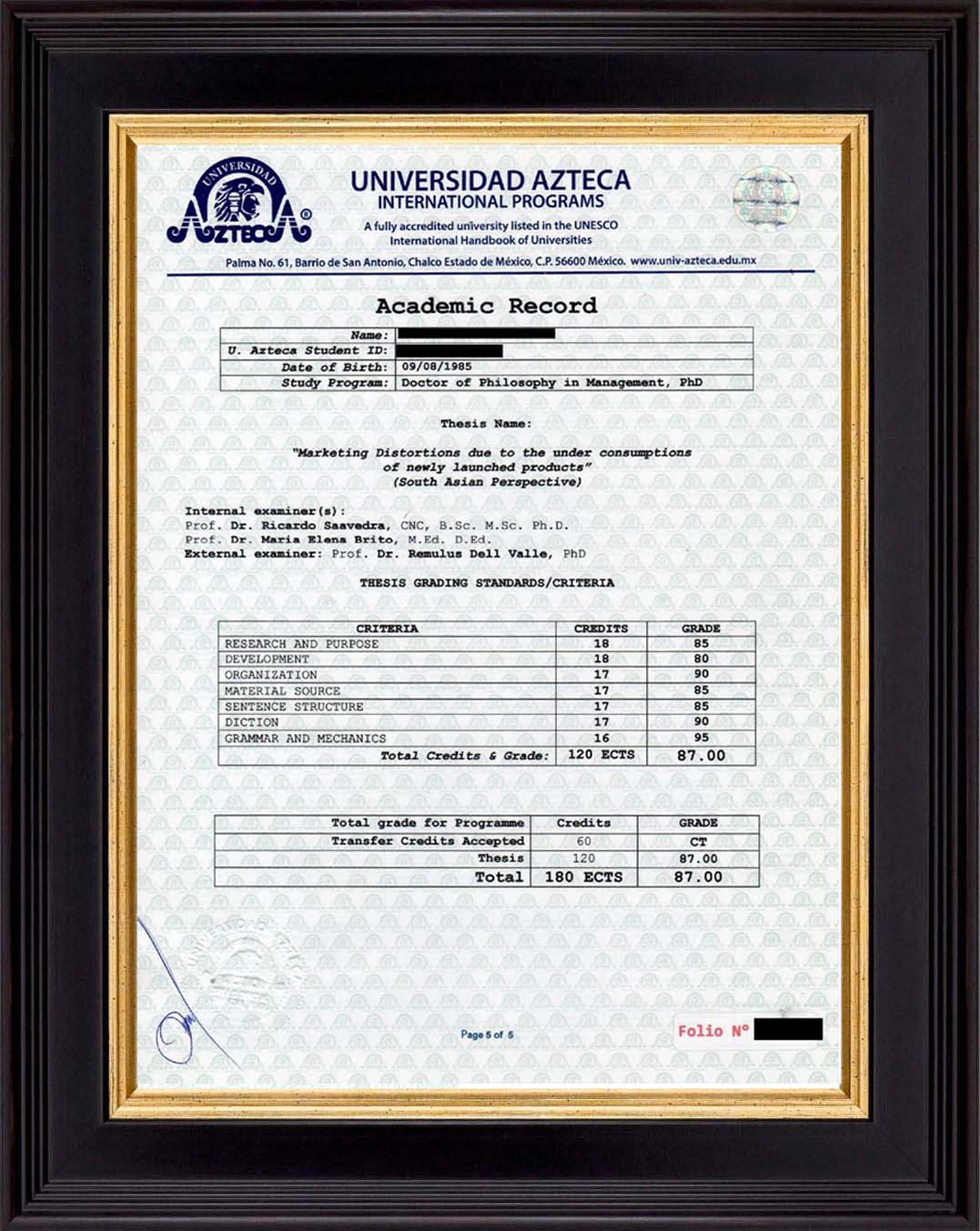Objectives of the Programme
The research based Doctor of Philosophy programme in the available disciplines has as a general aim of provision of an academically rigorous education designed to develop skills, expertise, knowledge and vision to enable students, whatever their chosen route, to be critical, analytical and creative. The programme aims to provide opportunity for self-development in relation to career enhancement and as life-long learners. The programme offers students the opportunity to develop their own capabilities, skills and competencies within a supported environment. The philosophy of the programme can be summarized by the following objectives.
- Develop a critical approach to the use of contemporary sources as a means of exploring complex concepts, ideas and issues of relevance and value to the chosen area of study.
- Develop the power of critical enquiry, logical thought, creative imagination and independent judgment.
- Provide a forum of study that allows each student to build on his or her past academic and vocationalexperience in a relevant and meaningful fashion.
- Expose the student to a range of prospective, which may be applicable to both the interests and work situations as appropriate.
- Recognize the variety of sources of learning and an appropriate diversity of means for assessing achievement.


Objectives of the Programme
This programme intends to allow the individual student to develop their potential through a carefully selected curriculum of study, which includes elements of a variety of methods of study orientated around both the academic and vocational axis. The primary objectives of the PhD programme are to:
- Enable the student to achieve an appropriate level of academic competence
- Achieve personal development and to develop critical awareness of benefit to themselves and to their profession or discipline
- Develop skills of initiation, implementation and analysis in a range of contexts Develop capability in the analysis and evaluation of complex issues and situations.
- The specific objectives of the program will vary according to the chosen named award and willinclude the:
- Development of knowledge at an advanced level
- Development of skills of analysis, research and policy formulation and implementation
- Unite theoretical analysis and practice through a variety of contexts appropriate to the discipline.
PhD disciplines
- Doctor of Philosophy in Business Administration (Specializations available)
- Doctor of Philosophy in International Law (PhD)
- Doctor of Philosophy in International Relations (PhD)
- Doctor of Philosophy in Health Sciences
- Doctor of Philosophy in Public Health
- Doctor of Philosophy in Social Science
- Doctor of Philosophy in Computer Science
- Doctor of Philosophy in Economics
- Doctor of Philosophy, (PhD) in Management (Specializations available)
- Doctor of Business Administration (DBA). Specializations available.
- Doctor of Philosophy, (PhD) In Computer Science and Engineering.
- Doctor of Philosophy, (PhD) in Information Communication Technology (ICT).
- Doctor of Philosophy in International Law
- Doctor of Philosophy in Law (PhD).
- Doctor of Education (D.Ed.).
- Doctor of Philosophy, (PhD) in Environmental Science.
- Doctor of Philosophy, (PhD) in Alternative & Natural Medicine.
- Doctor of Philosophy, (PhD) in Psychology.


Programme Structure and Module Syllabus
The PhD qualifications are terminal degrees. The PhD is a research doctorate, requiring course-work beyond the Masters level plus research and dissertation contributing to theory or practice in relation to the discipline as well as to development of professional practice by contributing to field-specific knowledge and hence impact practice beyond research.
The PhD curriculum consists of 180 ECTS credits of postgraduate study, offered as modular fashion. PhD-candidates transfer 60 ECTS credits from the Master (MPhil/MSC/LLM/MBA) degree, and complete the PhD programme by a final Thesis/Dissertation (120 ECTS credits) focused on a specific field or industry of management.
Elective (transfer) courses (60 ECTS)
- PhDen1480 - Business Research Methods
- PhDen1490 - Thesis Presentation & Defence
- PhDen1510 - Thesis Seminar 1
- PhDen1520 - Thesis Seminar 2
- PhDen1530 – Publication
Transfer of up to 60 credits from postgraduate coursework in the given discipline of the candidate can be accepted. A minimum of 36 ECTS credits must be in the concentration of the candidate.
Mandatory Thesis project (120 ECTS)
- PhDen1650 - Thesis Project
- PhDen1655 - Defense & Examination
Entry requirements
The entry requirements are a graduate degree of at least 300 ECTS credits in total, an MPhil, MBA, MSc, MA or comparable Masters degree, or equivalent qualifications at EQF level 7B, or in a functional field by examination awarded by a professional body. We may also ask for significant experience in a supervisory position involving responsibility for decision making.
PhD programme duration
- 3 study years full time (can be completed in 2 years with transfer credits)60 ECTS in coursework plus 120 ECTS for PhD Thesis
- Transfer credits: 60 ECTS in coursework from MPhil/MSc/MBA/LLM
- Research Thesis for PhD: 120 ECTS for PhD Thesis
PhD programme duration
Online PhD programme.
Level
Postgraduate (EQF level 8)
Tuitions
Tuitions vary by the single or dual degree options. For applicable tuitions, For applicable tuitions, please, contact with the KIMT admission authority. Tuitions are due in full with enrolment for the complete programme.


Duration and workload of a course
Successful completion of a course with a workload of 6 ECTS credits is estimated to be approximately 150 hours. Students should allocate approximately eight hours a week for reading, personal study, completion of reflection activities and submission of assignments. There is one marked assignment per module. Courses are offered on a part-time basis and are designed to be completed within four months. The asynchronic e-learning mode of the programme allows students to proceed at their own pace.
Study language
The programme is conducted in English proficiency is required for the PhD programme
Assessment
KIMT will carry out the internal assessment. On this course, you'll be assessed by coursework in your first year (or second year for part-time students). The degree is awarded when you submit your thesis and successfully defend it by oral examination (viva-voce) at the end of your research.
Overall workload
Your overall workload consists of contact hours (lectures, seminars, research group meetings and meetings with your supervisor), independent learning and assessments. For full-time students, the workload should be roughly equivalent to a full-time job. For part-time students, this will reduce in line with the amount of time you have allocated to complete the programme.

Feedback summary
Once you submit your dissertation, it normally takes three months for the thesis to be reviewed by an examination team. The viva exam normally takes place towards the end of this three-month period.
Careers and placements
What sort of careers do graduates pursue?
You can have a career in research, whether in academia, think tanks, private research institutions, or the research and development departments of businesses or government bodies.
Do you provide employability services?
Our Business School Employability team is committed to supporting your journey towards a rewarding graduate destination. We provide a professional service to empower you to achieve your potential and offer support for two years after graduation. Services include:
- CV, cover letter, and application tips
- Interviews support
- Careers fairs
- Mentoring
Azteca University Facts
- The Ministry of Foreign Affairs can fully certify a degree. Universidad Azteca is a nationally recognized university by the National Ministry of Education.
- More than 10,000 Students on Main Campus.
- TRACCERT fully accredits it, Training Accreditation & Certification Organization Canada, a member of AAAC-Association of Accrediting Agencies of Canada, and a registered Accreditation and Certification Body with the Government of Canada.
- Azteca University is Certified ISO 9001:2015 and ISO 29990:2010.
- Azteca University is listed at IAU- UNESCO, the United Nations Educational, Scientific, and Cultural Organization directory.
- Azteca University Degrees can be legalized with Apostille or Embassies attestations.
- Decades of experience in international higher education.
- Support for third-party verification, continuing education, or employment purposes.
- Azteca University Students can receive the Canadian Accrediting Agency Certification (Digital at the Agency Portal and Hard Copy)
- Immigration support to Canada.
- Innovative educational system.
- World-class research and curriculum.
- The benefits of Off-Campus Research programs.
- International Networking in the USA, Canada, Europe, Latin America, Africa, Asia, and the Middle East.
- Graduated Students can participate in Official Graduations at Campus.



